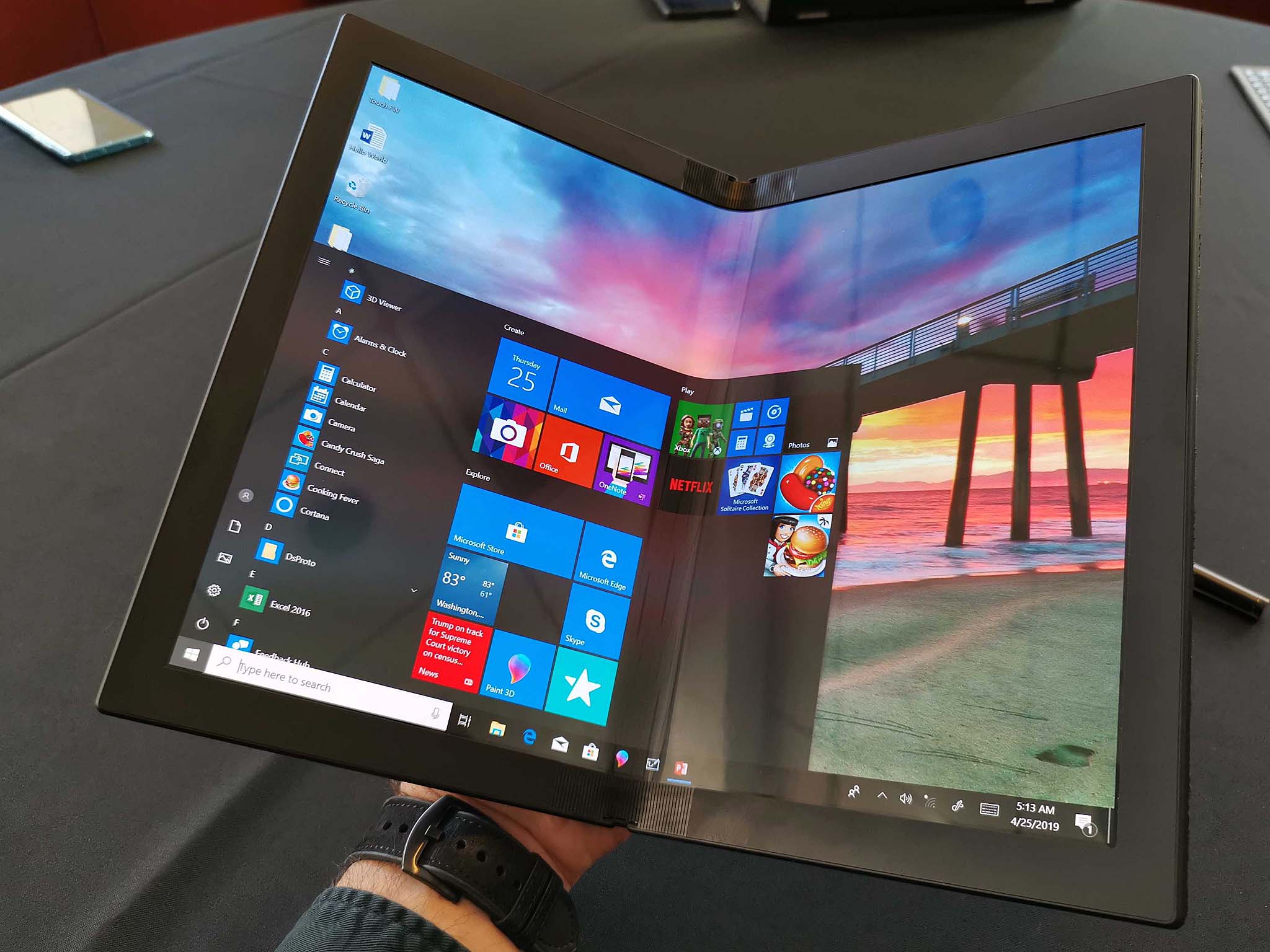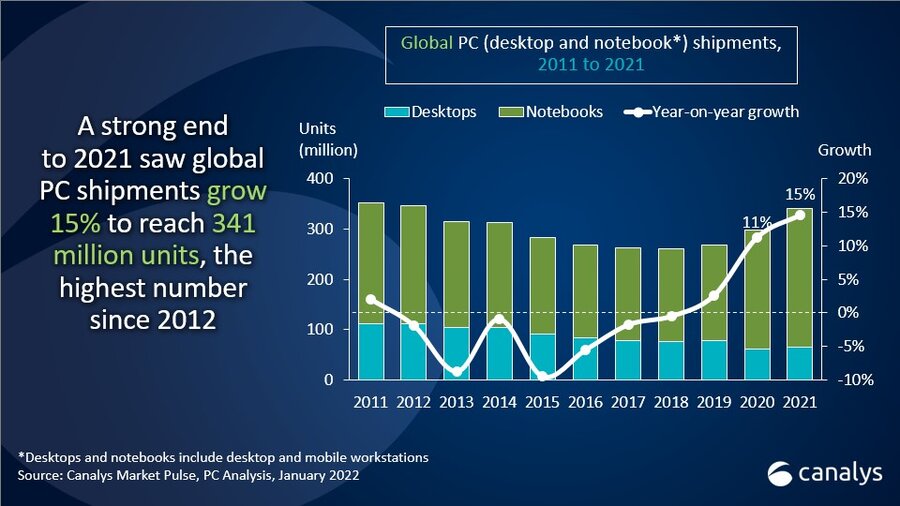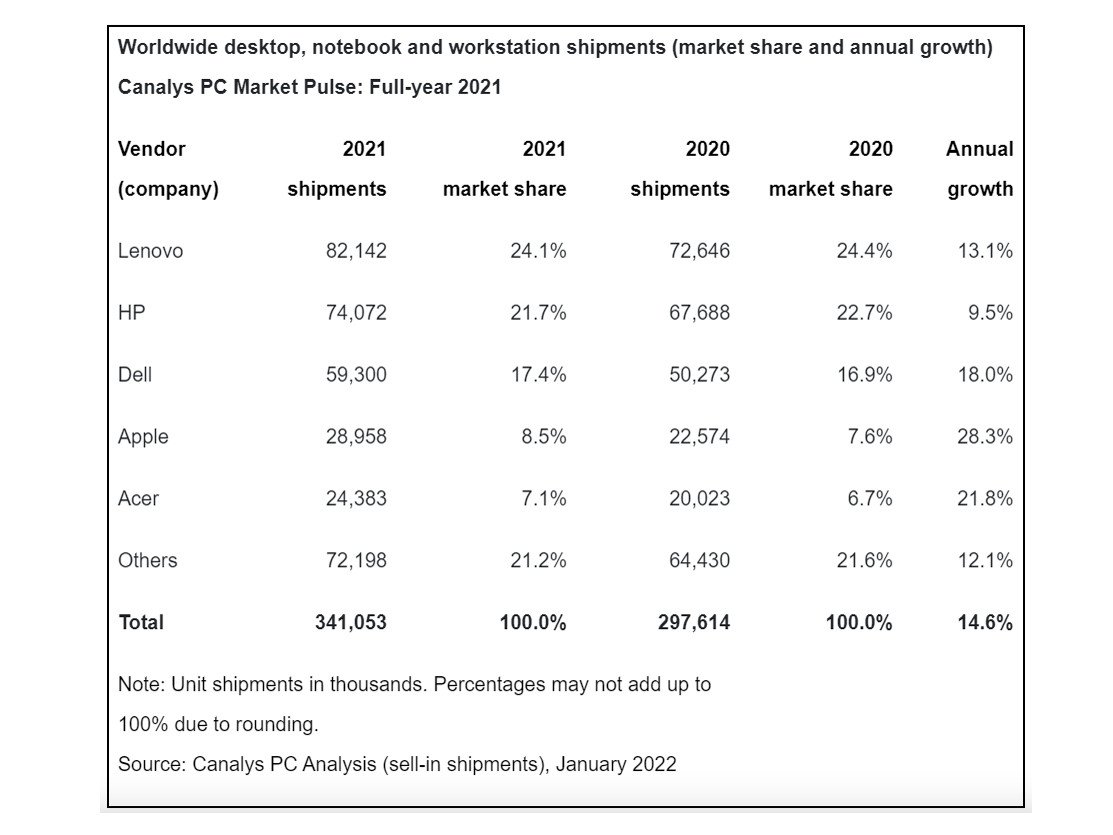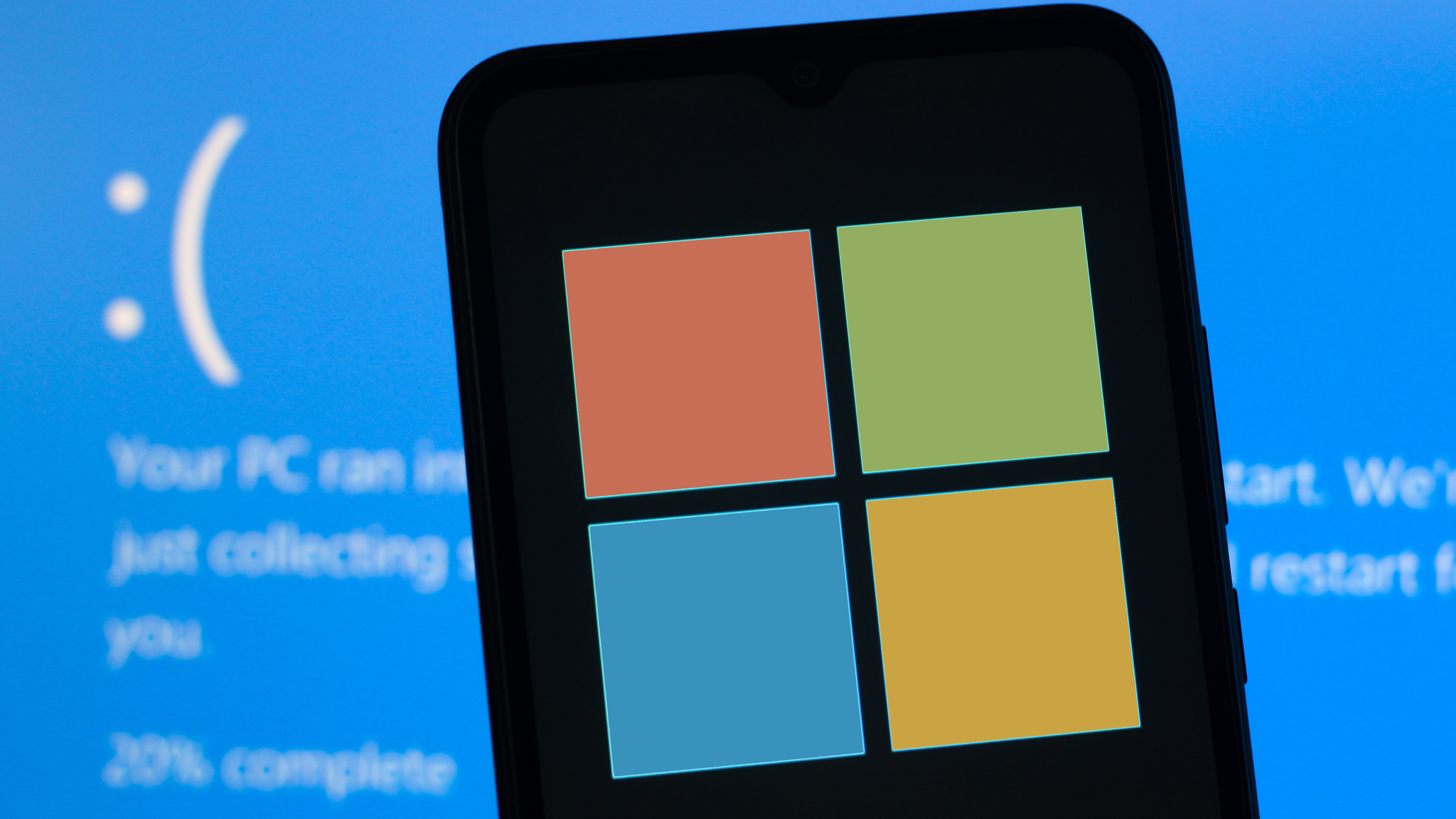Report: Record-breaking 341 million PCs shipped in 2021, highest since 2012, with 'digital acceleration' for 2022
Despite severe supply-chain constraints, worldwide shipments of PCs grew 1% year on year to 92 million units last quarter versus 91 million a year ago.

What you need to know
- Canalys released a very bullish report on the PC market today.
- PC vendors shipped an estimated 341 million PCs in 2021, the highest since 2012.
- Ownership of two or more PCs per person has become more common in developed markets.
- PCs are now in the hands of both young students and older family members.
Canalys released a fascinating and promising report today on the status of the PC market (Update: Research firm Gartner has also weighed in). While many had anticipated a severe weakening or even drop off PC shipments with the pandemic winding down slightly, the exact opposite has happened.
Based on vendor and supply checks, the research company estimates that a whopping 92 million new PCs shipped last quarter of 2021 (desktops, notebooks, and workstations; not tablets), up from 91 million for late 2020.
That quarterly boost helped propel total shipments for all of 2021 to 340 million PCs, which is "15% higher than last year, 27% higher than 2019, and the largest shipment total since 2012."
It wasn't just volume, either, as revenue is estimated to be about $70 billion for Q4, which is up 11% year-over-year (YoY).
More people owning more than one PC is now common
There were numerous takeaways from the report that Canalys concluded that are very interesting. For one, the research company says that new PCs are "now in the hands of both young students and older family members," suggesting that this growth wasn't just for enterprise but rather a broad spectrum cultural shift in PC technology adoption.
And while many tech reviewers and "pros" may own more than one PC, most people do not. However, even that is changing as Canalys claims that people owning "two or more PCs" has become "common in developed markets." The continued strong PC gamer market and increase in laptop sales suggest people want both desktop performance and mobility in their lives.
Canalys hammers this point home with some firmer numbers:
All the latest news, reviews, and guides for Windows and Xbox diehards.
The two-year compound annual growth rate of 13% from 2019 emphasizes how dramatically the importance of PCs has grown since the onset of the COVID-19 pandemic. Notebooks and mobile workstations continued to lead the charge, with shipments of these devices growing 16% in 2021 to reach 275 million units. Desktop and desktop workstation shipments increased 7% in 2021 to reach 66 million units.
Ishan Dutt, a Senior Analyst at Canalys, goes on to describe the shift:
"For the market to post double-digit growth over an impressive 2020, despite the constant cloud of supply constraints, speaks volumes about how strong PC demand has been over the last 12 months. Taking a long-term view, the most important developments in 2021 were the large increases in PC penetration and usage rates. PCs are now in the hands of both young students and older family members, while ownership of two or more PCs per person has become more common in developed markets. Since the onset of the pandemic, a larger than normal proportion of PCs shipped have been new additions to the installed base rather than replacement devices, especially in areas such as education and remote work. This has set the stage for continued success for the PC industry as there is no turning back from how embedded they are in our day-to-day lives."
Of course, PC makers are likely pleased with this added computer usage. Assuming remote work continues to accelerate, all those PCs will eventually need replacing in 3 to 5 years, which bodes well for continued market stability. While PC growth will ultimately be limited (or even waning), it's clear that PCs are now central to many people's lives.
The top three: Lenovo, HP, and Dell
Breaking these numbers down by vendor, it is no surprise that Lenovo remains in the top spot. For Q4, it shipped 21.7 million units, a YoY decline of 6.5%. But it still hit a record 82.1 million units for all of 2021, a 13.1% increase over 2020.
HP came in second with Q4 shipments of 18.7 million units and 71.4 million units for all of 2021, up 9.5% over the previous year.
Dell was just behind HP for third with 17.2 million units, with an impressive 8.9% Q4 growth, pushing it to 59.3 million units shipped for all of 2021. It saw a very impressive 18% growth YoY, which garnered an extra 1% of market share, likely taken from Lenovo and HP. (We can only imagine what the new XPS 13 Plus will do for it.)
Apple is a distant fourth, but due to the popularity of its M1 processor (and lock-in for upgrades), it had an impressive 28% annual growth with 7.8 million units shipped in Q4 and 29.0 million units in full-year 2021.
Rounding out the top five for Q4 and the year is Acer, with shipments of 6.6 million in Q4 and 24.4 million units in 2021. It also saw an impressive 22% increase in annual growth.
Combined, Lenovo, HP, Dell, and Acer account for 70% of the PC market, with another 21.6% left to "others" like Razer, ASUS, Microsoft, MSI, etc. for 91.5%.
Apple improved its market share from 7.9% in 2020 to a modest 8.5% in 2021, according to Canalys.
Looking forward: 2022 is about digital acceleration

Finishing off the report, Canalys Principal Analyst Rushabh Doshi repeats what could be Microsoft CEO's Satya Nadella's talking points from Build keynotes:
"While 2021 was the year of digital transformation, 2022 will be the year of digital acceleration … We will see revenue growth in the industry from spending on premium PCs, monitors, accessories and other technology products that enable us to work from anywhere, collaborate around the world and remain ultra-productive. The importance of faster, better, more resilient and more secure PCs has never been greater, and the industry is willing to innovate and push the boundaries to keep this momentum going."
Microsoft has been pushing security for years now, solidified in its Pluton Chip, which is starting to ship in new PCs this year as well as building out Microsoft Defender across devices.
Likewise, mobility has been a cornerstone of Windows for years now, starting with Windows on ARM in late 2016, but also the rapid adoption of 4G LTE and 5G PCs (Lenovo had the first mmWave 5G laptop commercially available back in 2020). Indeed, just the week Microsoft began to sell the Surface Pro 8 and Surface Go 3 both with 4G LTE.
And with Intel 12th Gen and AMD Ryzen 6000 Mobile processors shipping in the coming months, new form factors like PCs with foldable displays will continue to push mobile computing even further.
In other words, it sounds like a good time to be into computers.

Daniel Rubino is the Editor-in-Chief of Windows Central. He is also the head reviewer, podcast co-host, and lead analyst. He has been covering Microsoft since 2007, when this site was called WMExperts (and later Windows Phone Central). His interests include Windows, laptops, next-gen computing, and wearable tech. He has reviewed laptops for over 10 years and is particularly fond of Qualcomm processors, new form factors, and thin-and-light PCs. Before all this tech stuff, he worked on a Ph.D. in linguistics studying brain and syntax, performed polysomnographs in NYC, and was a motion-picture operator for 17 years.


